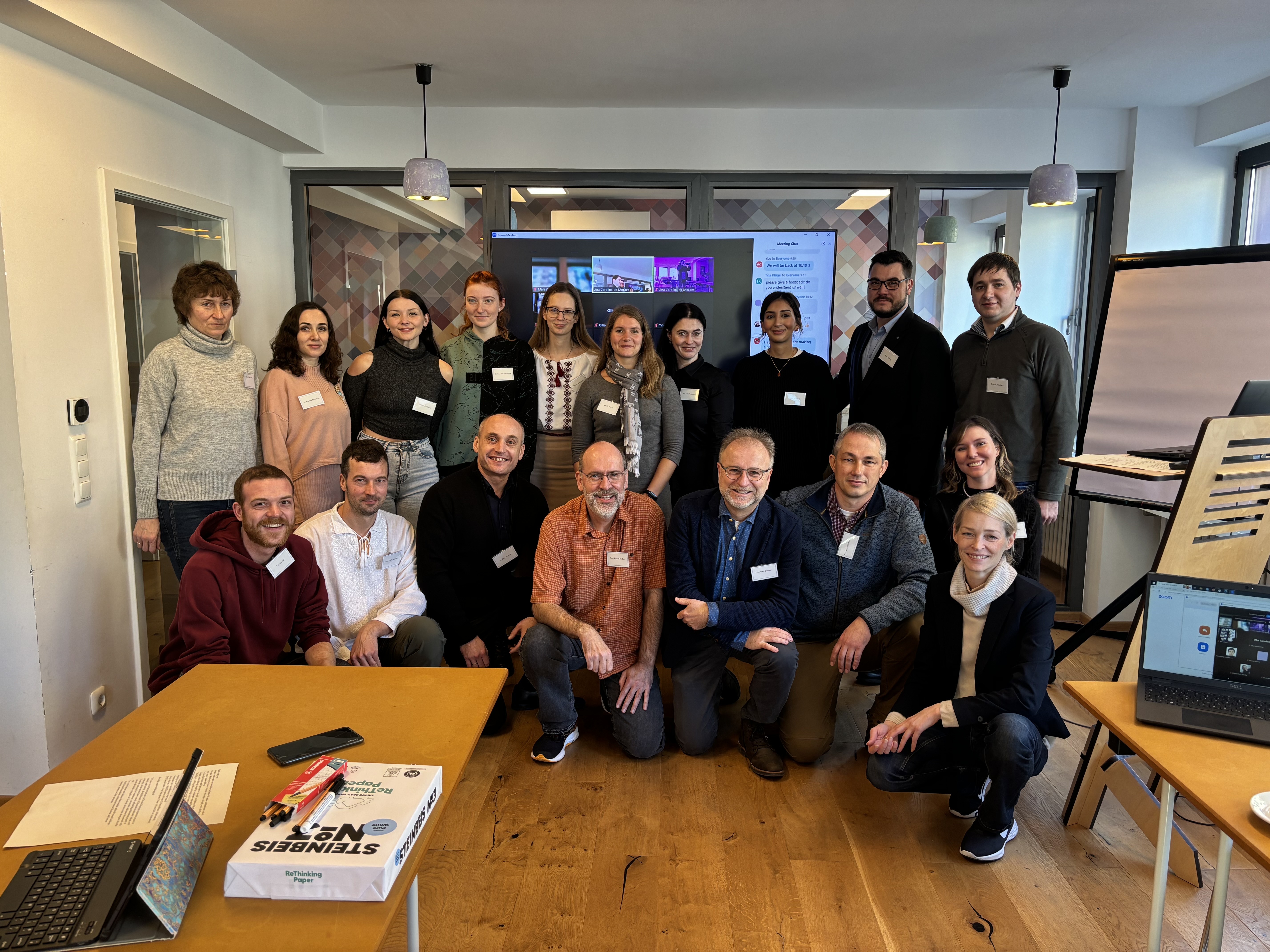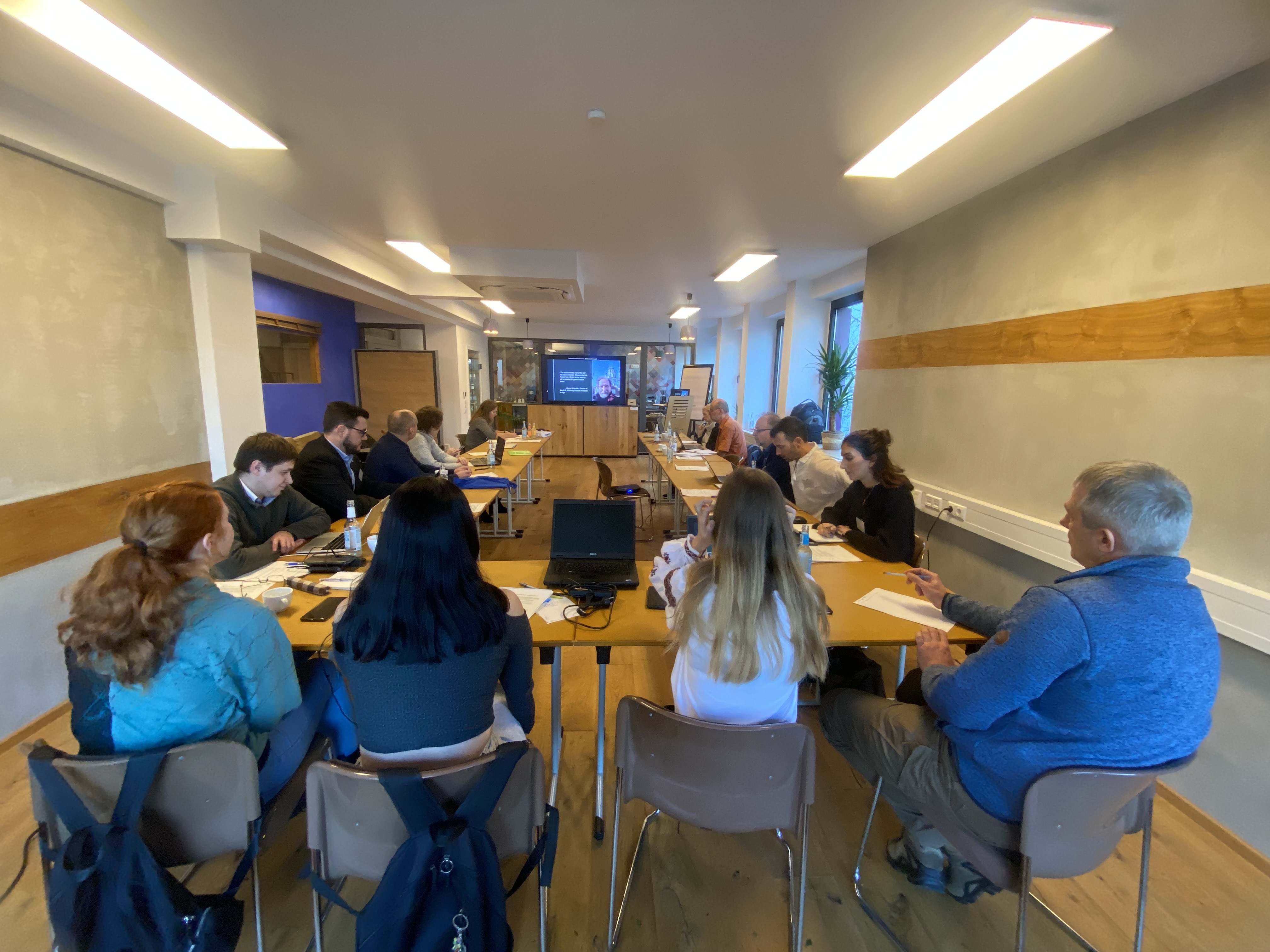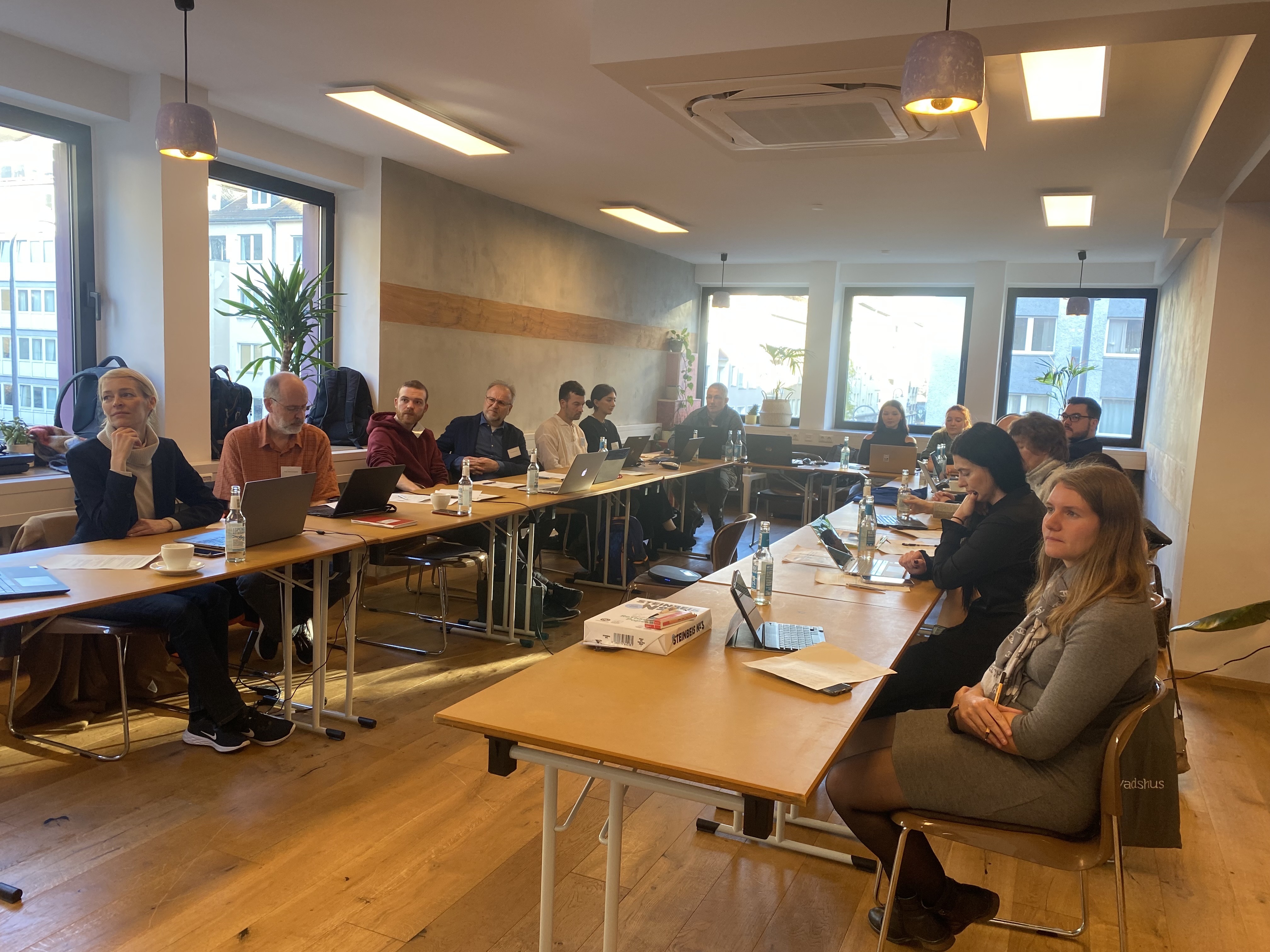Workshop on German-Ukrainian Research and Education Programs
The University of Cologne proudly hosted the "Workshop on German-Ukrainian Research and Education Programs" on December 18-19, 2023. This hybrid event, a cornerstone of the Fokus Ukraine program funded by the Stiftung Innovation in der Hochschullehre, gathered eminent scholars and educators to discuss and develop forward-looking strategies for cooperation in research and education, particularly in light of current geopolitical challenges.
Day 1: Multidisciplinary Insights and Student Empowerment
The workshop kicked off with a presentation from the Plant-Ukraine team, setting the stage for a day of rich, interdisciplinary discussions. The Plant-Ukraine project is an interdisciplinary module in association with the University of Cologne, TH Köln, six Ukrainian universities, and the Plant Production Institute (Kharkiv), offered to biology and engineering students to work as a team developing their experiments relating to plant sciences and climate change. Key among the discussions was the insightful contribution from Uwe Dettmar (University of Applied Sciences - TH Köln) on the InnoBioDiv project. In collaboration with The Bucher Lab at the University of Cologne, the project is investigating the impact of climate change on plant growth and soil biodiversity. Dettmar's presentation highlighted the project's innovative use of IoT technology in plant experiments and its emphasis on interdisciplinary research. Marcel Bucher's lecture shed light on the evolution of land plants, starting with the first streptophyte algae half a billion years ago, which left the water and colonized the land. This transition led to significant adaptations in the metabolism and structure of plants, including the development of roots and leaves. Bucher emphasized how today's plants still struggle with similar environmental factors and how evolutionary innovations, including symbiosis with mycorrhizal fungi, help them to do so. He drew connections between these historical developments and current approaches to strengthen crops against climate change.
In particular, presentations by Oleksandra Voloshyna and Tetiana Borysenko from V.N. Karazin Kharkiv National University, as well as Darina Nienova from Kharkiv National University of Radio Electronics, notably, highlighted the transformative power of international cooperation in education. Their accounts underlined the role of projects such as Plant-Ukraine in empowering Ukrainian students, providing them with invaluable personal and practical experience and global perspectives, especially during wartime.
Pavlo Ardanov provided insights into permaculture in Ukrainian higher education, while Antonina Vasylenko, along with Olha Zadorozhna, introduced the collaborative efforts of the Institute of Plant Production named after V.Ya. Yuriev. Irina Kolupaieva and Yurii Romashov from the Kharkiv National University of Radio Electronics also listed proposals for the improvement of the Plant-Ukraine project, aiming to address challenges in project implementation by synchronizing timetables, enhancing language skills, and bridging multicultural gaps.
Further enriching the dialogue, Richard Stone of Howard Hughes Medical Institute's Tangled Bank Studios presented an eye-opening account of the ecological impact of the war in Ukraine, highlighting the often overlooked environmental dimensions of the conflict. For example, the breach of the Kakhovka Dam, which held 18 billion cubic meters of water, threatens a mass die-off of aquatic life and a decline in water quality. This flow into the Dnipro River, one of Europe's longest, could also temporarily desalinate parts of the Black Sea.
Day 2: Fostering Academic Collaboration and Innovation
The second day of the workshop shifted the focus to forward-looking collaborations and strategies to enhance educational opportunities. Notable presentations included Anastasiia Panchuk's insights on piloting academic corridors to prevent brain drain from Ukraine, Eva Schwerter's discussion on Fast Track Bachelor Admission at RWTH Aachen, Oleg Prymak's introduction of the German-Ukrainian Academic Society and Peter Maring’s talk about Ukrainian future scientists at the Mittweida University of Applied Sciences - Preparatory College. These presentations underlined the need for innovative educational approaches in times of crisis.
Combining art and science, Michael Burton and Michiko Nitta's presentation "Being Human" offered a creative perspective on human evolution and adaptation, illustrating the workshop's commitment to cross-disciplinary innovation.
Roundtable Discussions: Charting the Future Course
The workshop featured dynamic roundtable discussions in which participants worked together to develop actionable recommendations for future projects and collaborations. These discussions were instrumental in identifying successful strategies from past German-Ukrainian collaborations and addressing the challenges ahead, such as language barriers, cultural differences, and mobility constraints, particularly for male students. During discussions and group work, the desire to increase the visibility of already existing and future cooperative course offers was expressed. An extension of the existing network between German and Ukrainian universities as well as the exchange of students and teaching staff fostering the preparation of joint publications and research applications were other meaningful aspects, too.
Conclusion: A Way Forward
The workshop concluded with a consensus on the need for continued and expanded cooperation between German and Ukrainian academic institutions. The Plant-Ukraine team at the University of Cologne, in its role as a facilitator and participant in these dialogues, reaffirms its commitment to promoting academic excellence and innovation in the face of global challenges.
Upcoming Workshop Announcement
Looking ahead, the Plant-Ukraine team is pleased to announce the next workshop in the series, scheduled for May - July 2024. This upcoming event will build on the foundations laid in this workshop, continuing to explore and develop robust academic collaborations.
The Bucher Lab's "Plant-Ukraine" project in cooperation with Ukrainian universities continues to flourish
The Bucher Lab is proud to announce the visionary "Plant-Ukraine" project, which is being carried out in cooperation with Ukrainian universities. This innovative initiative is centered on promoting interdisciplinary and intercultural collaboration between students and researchers from Germany and Ukraine. The project focuses on exploring the relationship between climate change and its effects on plant growth and soil biodiversity. In learning modules, participants from the University of Cologne, the TH Köln/University of Applied Sciences, and Ukrainian institutions will combine modern technologies such as robotics and the Internet of Things with in-depth knowledge of the interactions between plants and microorganisms. The Plant-Ukraine project, funded by the Stiftung Innovation in der Hochschullehre ("Foundation for Innovation in Higher Education"), aims to explore additional networking opportunities and ensure sustainable collaboration and knowledge exchange for Ukrainian students and scientists. The Workshop on German-Ukrainian research and education programs to be held at the end of 2023 will support this objective.
We are happy to have contributed to the demonstration that the arbuscular mycorrhizal symbiosis is ancestral in land plants and depends on lipids.
The Bucher Lab participates in the CEPLAS - Cluster of Excellence on Plant Sciences – Excellent Science for Tomorrow´s Plants

The cluster of excellence CEPLAS – Cluster of Excellence on Plant Sciences – from complex traits towards synthetic modules is a joint effort of the University of Cologne, Heinrich Heine University Düsseldorf, Max Planck Institute for Plant Breeding Research (MPIPZ) and Research Institute Forschungszentrum Jülich (FZJ). Researchers of these institutions are pursuing inventive strategies for sustainable plant production. The goal of this cluster initiative is to develop state of the art methods for a second green revolution on the basis of innovative basic research and established know-how in plant research. CEPLAS focuses on cutting edge science as well as on the promotion of young scientists by novel study modules and individual training programmes.




